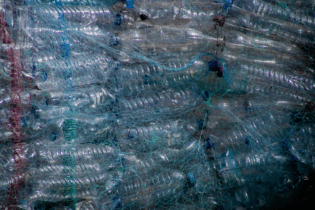Moreover, the projects have contributed to the support of small business enterprises, which have been used in services such as the provision of protective clothing, construction materials, equipment and catering.
Molewa pointed out that the department has implemented a total of 85 projects nationwide to support local government through the installation and construction of numerous waste sorting, composting and recovery facilities as a means of redirecting waste from landfill sites. The capacity building programmes that form part of the Youth Jobs in Waste Programme assist municipalities in terms of street cleaning, waste collection, landfill administration and operation, and waste recycling. “Despite a total estimated value of R25 billion to the South African economy, the current rate of waste recycling has not been maximised which meant that its full potential has not been realised,” said Molewa. “To grow this important economic sector, the government has identified an additional 34 WoW projects committing R420.8 million to their development for the 2016/17 and 2018/19 financial years.” The minister encouraged all young people to become involved in the collection and recycling of waste. “Through this under-utilised sector of our economy you will not only contribute improving the lives of our people by creating jobs, but also to the health and welfare of the environment.”
Minister of Environmental Affairs Edna Molewa yesterday launched the R30 million Gauteng Youth Jobs in Waste Programme in Mohlakeng, Randfontein.
According to Molewa, the Gauteng Youth Jobs in Waste Programme has employed 492 youths, comprising 271 women, 211 men and 10 youth living with disabilities. The programme has created over 4 000 job opportunities across the country since its launch in 2013.
The Department of Environmental Affairs has funded numerous projects within the Randfontein Municipality which are being implemented using labour-intensive methods in line with the Expanded Public Works Programme (EPWP), with an aim of 58% women employment, 65% youth and 2% being disabled people.
The waste sector has been identified as a key role-player in achieving the goal of economic upliftment through job creation as we work towards reaching the National Development Plan’s goal of creating an environmentally sustainable, climate change resilient, low-carbon economy and just society by 2030.
The department is implementing a Working on Waste (WoW) sub-programme under the EPWP which seeks to address the problem of increased volumes of waste and backlogs in the provision of waste services especially in urban-informal areas, tribal areas and rural formal areas.
The Youth Jobs in Waste Programme was designed to address some of the critical areas of assistance including capacity building, where youth are placed in municipalities for a period of a year to assist with administration relating to waste collection and planning.
This project has not only increased waste awareness campaigns in the community, but will also provide the much-needed human resources for the clearing of the illegal dumpsites.
The two projects under implementation will cater for accredited and non-accredited training opportunities for the local youth employed through these projects. This will equip them with the necessary skills that will enable them to find employment opportunities upon exiting the project.








